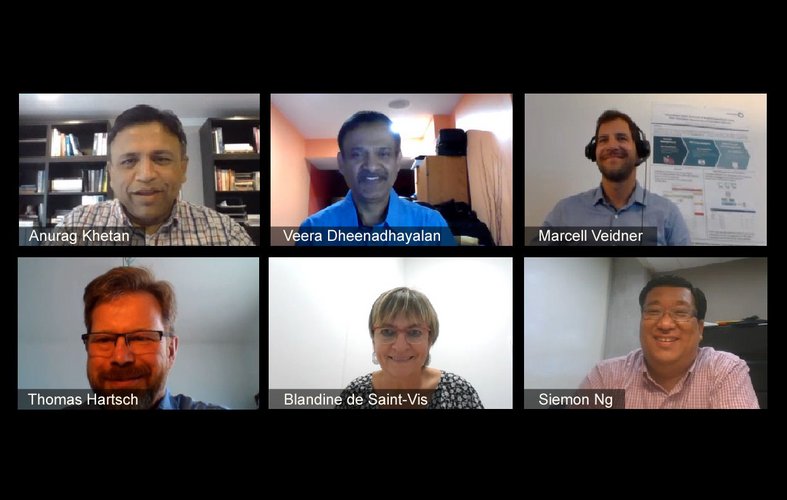Industry Knowledge Share on NGS for Safety of Biotherapeutics
December 9, 2021
Marie-Ange Kouassi
Committed to bringing scientific leaders together to share knowledge and learn from each other, we held our third biosafety open forum on 16th September 2021. This virtual industry workshop focused on the adoption of NGS for adventitious agent detection (ADD), was co-hosted by Bristol-Myers Squibb (BMS). Following an introduction by Anurag Khetan, Executive Director, Biologics Development at BMS, there were a range of informative talks from representatives of Sanofi Pasteur, Boehringer Ingelheim Animal Health (BIAH), and Genedata. With 16 biopharmaceutical companies present, an open, highly interactive platform was created that served to inform and spur engaging discussion on NGS data analysis, biosafety testing during vaccine development, and submission to regulatory authorities. Here are a few key takeaways from the topics discussed at the event.
Sanofi Pasteur’s early adoption of high-throughput sequencing (HTS) for ADD, has since equipped them with a wealth of valuable lessons to ensure biosafety of vaccines in development. Head of Molecular Biology, Siemon Ng, shared some of these lessons through case studies which explained how to evaluate and improve the detection sensitivity of the assay. Another valuable insight participants gained from Siemon was how to validate a HTS assay for AAD in a GMP environment for regulatory compliance.
The event proceeded to provide another perspective from Boehringer Ingelheim Animal Health (BIAH) continuing the same theme. We learned from Analytical Support Director, Blandine de Saint Vis, why BIAH selected NGS for their adventitious agent detection and the benefits in terms of speed, cost-effectiveness, and the ability to detect all possible contaminants. The value of an untargeted approach enabled by NGS was discussed as well as the impact of using a well-optimized, benchmarked bioinformatics analysis pipeline. After highlighting some of the challenges related to data analysis, validation, and defining a true contaminant, Blandine shared how they are overcoming these challenges and the current viral purity testing approach used at BIAH developed after refining their approach with Genedata.
Our open forum event also included a glimpse into the Genedata Selector® platform, with an interactive demo by Devon Ryan, one of the scientific consultants at Genedata. He demonstrated how Genedata Selector centralizes and simplifies the analysis of NGS data providing optimized bioinformatics pipelines out-of-the-box for use by individuals with no bioinformatics expertise. Genedata Selector offers transparency and full control over bioinformatics pipelines allowing to improve the quality of results. Participants received key pointers on modifying analysis pipelines to improve sensitivity and specificity. Finally, Devon explained the impact of the reference database used on the results obtained and provided advice on which delivers the highest accuracy.
Overall, this third industry workshop on biosafety was a success, generating an open platform for interesting talks and valuable discussion between scientific experts. From the high engagement shown and the wide range of questions submitted during the Q&A, it was clear that NGS-based biosafety testing is gaining increasing interest in the biopharmaceutical industry. Participants appreciated the introduction as well as the detailed explanations of complex related topics such as bioinformatics analytical pipelines. We hope the knowledge shared will be of immediate value to biopharmaceutical companies who attended the event. We look forward to hosting more of these events with biopharma, bringing scientific experts together to discuss important topics such as cell line development in fields such as cell and gene therapy.
